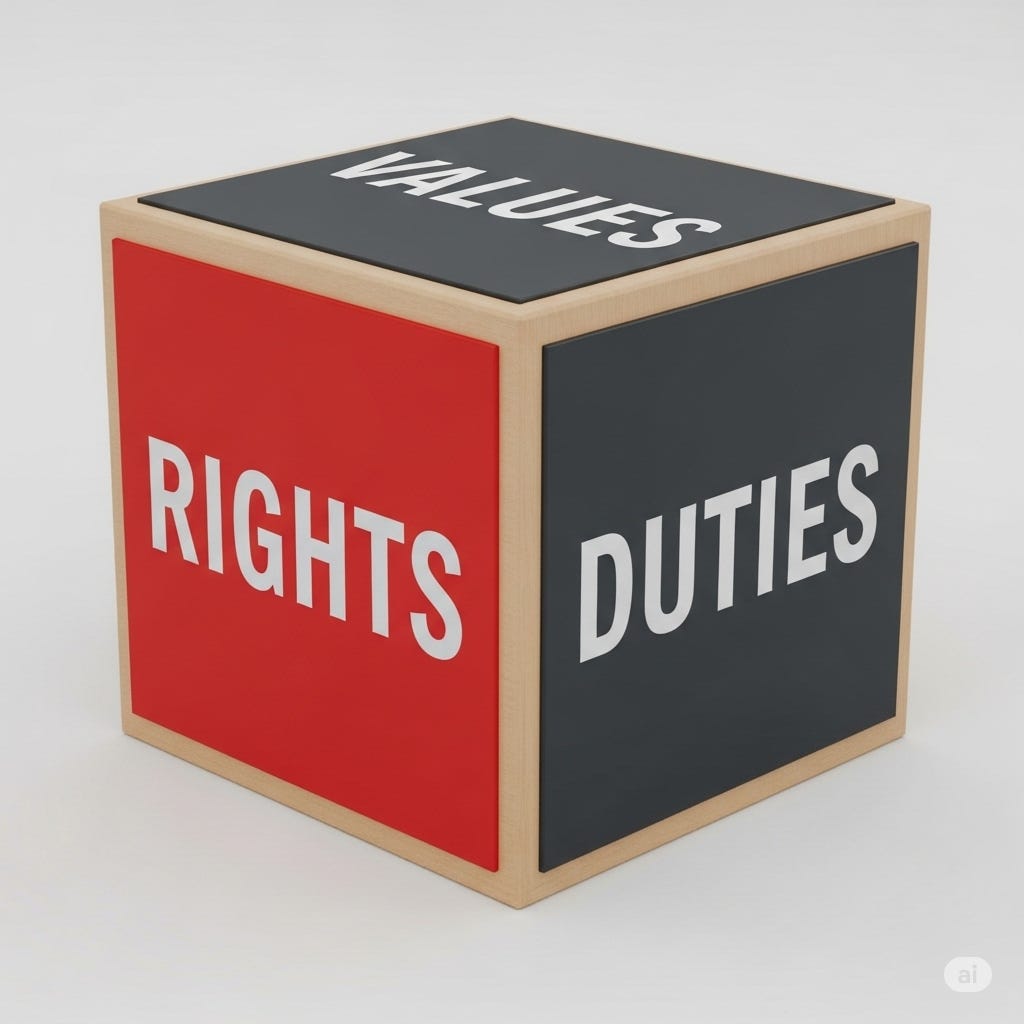Ethical Design Document: Universal Social Media Policy (Value-Aligned Framework)
Purpose: To implement a values-rooted, universal social media policy for a mainstream platform, balancing freedom of expression with moral responsibility. This framework draws from foundational ethical principles and is designed to be inclusive and applicable across diverse contexts.
I. Core Ethical Framework
Principle Function Inherent Human Worth Every user has dignity. Harmful content must be addressed respectfully, not erased thoughtlessly. Truth and Honesty All moderation actions must be transparent, fact-based, and subject to review. Shared Responsibility Platforms are accountable for what they allow or amplify. Silence or inaction can cause real harm. Duty to Prevent Harm Platforms must not stand by when foreseeable harm could occur. No Enabling of Harmful Behavior Platforms must avoid features that promote outrage, bullying, or manipulation. Public Integrity Mishandling speech ethics undermines trust in the platform and the communities it serves. Humility in Automation AI systems must acknowledge their limitations. Every user has a right to appeal and clarity. II. AI Moderation Logic
1. Harm Detection Thresholds AI flags content likely to cause harm based on:
Dehumanizing language
Incitement to violence or discrimination
Misleading or doctored content
Personal attacks, group slurs, or mockery of suffering
2. Real-Time Ethical Dialogue Before publishing, users receive a contextual message:
"This post may be perceived as harmful due to [reason]. Our ethical guidelines emphasize dignity and respectful communication. Would you like to revise, discuss, or continue as-is?"
Options:
"Edit with Suggestions"
"Discuss with AI"
"Post Anyway (Visibility May Be Reduced)"
"Learn More About This Warning"
If "Discuss with AI" is selected:
The AI engages in a structured, respectful dialogue to understand user intent.
The user may explain context, clarify meaning, or propose alternate wording.
Together, the AI and user may co-create a revised version that preserves intent while reducing risk of harm or misunderstanding.
At the end of the interaction, the user is asked:
"Would you like to anonymously share this dialogue with the platform's ethics team to help improve our policies?"
If accepted, the data is sent anonymized and used for policy refinement.
This supports ongoing ethical learning and accountability — a model of platform-level course correction.
3. Visibility Management If posted without revision:
Post is algorithmically downranked
Visible advisory label is attached
Viewers may choose to hide, report, or engage with content thoughtfully
4. Appeal and Oversight
All flagged content can be appealed
Human reviewers trained in ethics review each case
AI decision-making is transparent and available for scrutiny
5. Hard Threshold for Illegal or Dangerous Content Some content must be removed immediately and cannot be published under any condition. This includes:
Verified illegal material (e.g., child exploitation, terror propaganda, threats of violence)
Clear and imminent incitement to violence
Content explicitly designed to cause harm or violate platform or legal safety standards
For such content:
No option to edit or post is provided
AI issues a clear explanation and cites relevant policy or legal standard
Content and metadata are quarantined for audit purposes
If criminal in nature, the platform reports to appropriate authorities, even if the content was never posted. This includes mandatory reporting of child exploitation material, as required by law. In 2024 alone, over 36 million such reports were filed globally.
An appeal process exists, but the default action is immediate suppression and referral
III. Platform Integrity Measures
Transparency Portal: Public access to all moderation rules and the ethics behind them
Graceful Correction: Users can revise or delete content without punishment or shame
Propaganda Safeguards: Moderation training and data screening guard against misinformation, manipulation, and biased framing
Protection of Diverse Voices: Disagreement is welcome; only speech that causes harm is moderated
IV. Platform Message to Users
"Speech is power. Use it as if every person matters — because they do."
V. User Response to Perceived Harm
If a user encounters content they find offensive or harmful, they are offered a respectful pathway to respond:
Flag and Explain: The user may flag the content and describe — in their own words — why they found it troubling.
AI Acknowledgment and Clarification: The AI responds by explaining why the content was not automatically flagged, while respectfully acknowledging the user's experience.
Offer of Anonymous Logging: The user is asked:
"Would you like to anonymously share this flag and explanation with the platform's ethics team to inform future policy adjustments?"
If accepted, the data is anonymized and logged.
Users are informed that while not all cases receive individual review, all are weighted using transparent criteria and can influence platform-wide ethical refinement.
Personal Content Controls:
Users may choose to block the individual post, the user who posted it, or all content matching similar categories or patterns.
Settings are customizable, respectful, and clearly explained.
This process ensures both dignity and protection for those affected by harmful speech, fostering a culture of mutual responsibility and continuous learning.
Note: This policy expresses ethical reasoning and universal principles of responsible communication. It does not replace legal compliance or cultural sensitivity, but aims to create a safe and respectful digital public square.
|
"He's an Anti-Zionist Too!" cartoon book (December 2024) PROTOCOLS: Exposing Modern Antisemitism (February 2022) |
 |

 Elder of Ziyon
Elder of Ziyon.png)

 Buy
Buy 

.png)






















.png)

